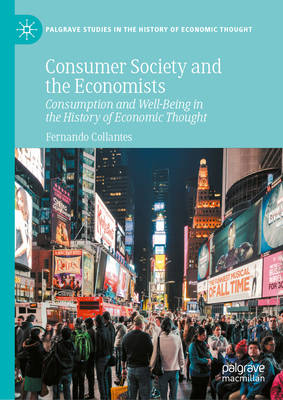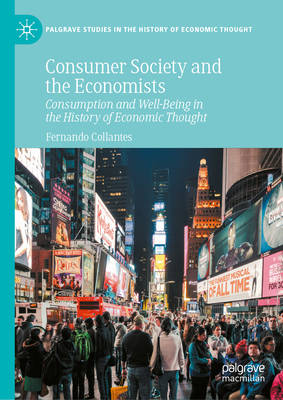
- Afhalen na 1 uur in een winkel met voorraad
- Gratis thuislevering in België vanaf € 30
- Ruim aanbod met 7 miljoen producten
- Afhalen na 1 uur in een winkel met voorraad
- Gratis thuislevering in België vanaf € 30
- Ruim aanbod met 7 miljoen producten
Consumer Society and the Economists
Consumption and Well-Being in the History of Economic Thought
Fernando CollantesOmschrijving
Is consumer society a vehicle for progress? Or is it a detour leading us away from the path to the good life? To what extent is consumer society a relevant object of analysis, after all? Today, these questions are central to the debate on the dynamics of capitalism and their impact on human well-being. Yet they are by no means exclusive to our time. This book traces the history of economic thought on consumer society from the late eighteenth century to the present day. It explores the ambivalence of classical political economists and Marx towards the world of consumption. It narrates the making of an intellectual battlefield between rival views of consumer society during the period 1870-1945 and the head-on clash that took place between those views during the decades after the Second World War. How these debates reemerged following the end of the Cold War and the Global Financial Crisis is also covered.
This is the story of how economists debated consumer society and how that debate was shaped by another fundamental discussion: how economists should conduct their research and what kind of relationships they should maintain with other social sciences and the humanities. It will be relevant to students and researchers interested in the history of economic thought and political economy.
Specificaties
Betrokkenen
- Auteur(s):
- Uitgeverij:
Inhoud
- Aantal bladzijden:
- 229
- Taal:
- Engels
- Reeks:
Eigenschappen
- Productcode (EAN):
- 9783031966446
- Verschijningsdatum:
- 15/10/2025
- Uitvoering:
- Hardcover
- Formaat:
- Genaaid
- Afmetingen:
- 148 mm x 210 mm
- Gewicht:
- 449 g

Alleen bij Standaard Boekhandel
Beoordelingen
We publiceren alleen reviews die voldoen aan de voorwaarden voor reviews. Bekijk onze voorwaarden voor reviews.








